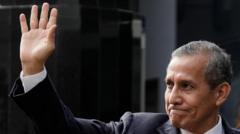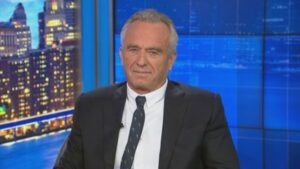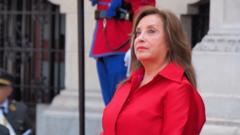In a concerning trend, former President Moon Jae-in of South Korea has been indicted on bribery charges, marking another significant event in a nation grappling with political strife and former leaders facing legal challenges.
Former South Korean President Indicted Amidst Political Turmoil

Former South Korean President Indicted Amidst Political Turmoil
Moon Jae-in's bribery charges amplify ongoing divisions in South Korea's political landscape.
April 24, 2025, marks a pivotal moment in South Korean politics as former President Moon Jae-in has been indicted on allegations of bribery, joining a growing roster of past leaders subjected to legal scrutiny. The case revolves around his former son-in-law's employment at a now-defunct budget airline in Thailand, where he allegedly received about 217 million won (approximately $150,000) in compensation, which prosecutors claim constitutes a bribe intended for Mr. Moon.
The controversy derives from Moon's influence as the son-in-law was placed in an executive position in the airline, favoring the Moon family despite a lack of qualifications, according to prosecutors in Jeonju. Notably, this ex-son-in-law, previously wed to Moon's daughter, worked under Lee Sang-jik, a business associate who served as head of a governmental agency promoting small businesses during Moon's presidency.
As the indictment unfolds, tensions mount in South Korea, where political polarization has intensified, with growing scrutiny of leaders' actions both during and after their tenure.
The controversy derives from Moon's influence as the son-in-law was placed in an executive position in the airline, favoring the Moon family despite a lack of qualifications, according to prosecutors in Jeonju. Notably, this ex-son-in-law, previously wed to Moon's daughter, worked under Lee Sang-jik, a business associate who served as head of a governmental agency promoting small businesses during Moon's presidency.
As the indictment unfolds, tensions mount in South Korea, where political polarization has intensified, with growing scrutiny of leaders' actions both during and after their tenure.






















